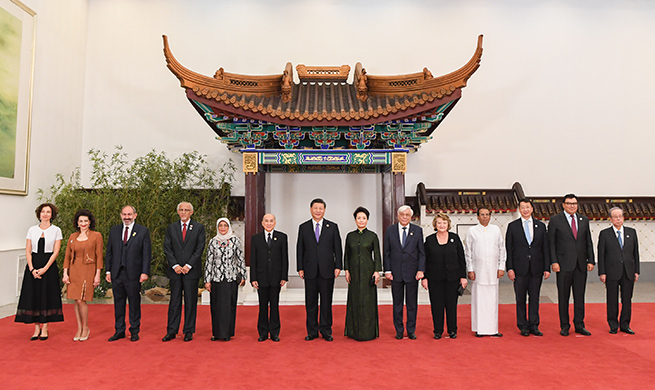GENEVA, May 14 (Xinhua) -- The World Health Organization (WHO) on Tuesday released new guidelines for reducing the risk of dementia, recommending a healthy lifestyle including regular exercise, not smoking, avoiding harmful use of alcohol, and controlling weight.
The new guidelines provide the knowledge base for healthcare providers to advise patients on what they can do to help prevent cognitive decline and dementia. Specific recommendations to reduce the risk of dementia include regular physical activity, not smoking, healthy and balanced diet, avoiding hazardous and harmful drinking of alcohol, cognitive training for older adults, and social participation and social support.
The WHO also advocates proper management of a range of health indicators as ages grow, such as that of mid-life overweight and obesity, hypertension, diabetes mellitus, dyslipidemia, depression, and hearing loss.
The guidelines will be useful for governments, policy-makers and planning authorities to guide them in developing policy and designing programs that encourage healthy lifestyles, the WHO said.
The WHO strongly recommends that countries manage the growing health challenge of dementia by creating national policies and plans, an essential element of which is support for carers of people with dementia.
Dementia is an illness characterized by a deterioration in cognitive function beyond what might be expected from normal ageing. It affects memory, thinking, orientation, comprehension, calculation, learning capacity, language and judgement. Dementia results from a variety of diseases and injuries that affect the brain, such as Alzheimer disease or stroke.
The WHO statistics show that dementia is a rapidly growing global public health problem. Worldwide, around 50 million people have dementia, with nearly 60 percent living in low- and middle-income countries.
The total number of people with dementia is projected to reach 82 million in 2030 and 152 million in 2050.
While age is the strongest known risk factor for cognitive decline, dementia is not a natural or inevitable consequence of ageing, the WHO said. Studies have shown a relationship between the development of dementia with lifestyle related risk factors, certain medical conditions, and other risk factors such as social isolation and cognitive inactivity.

















